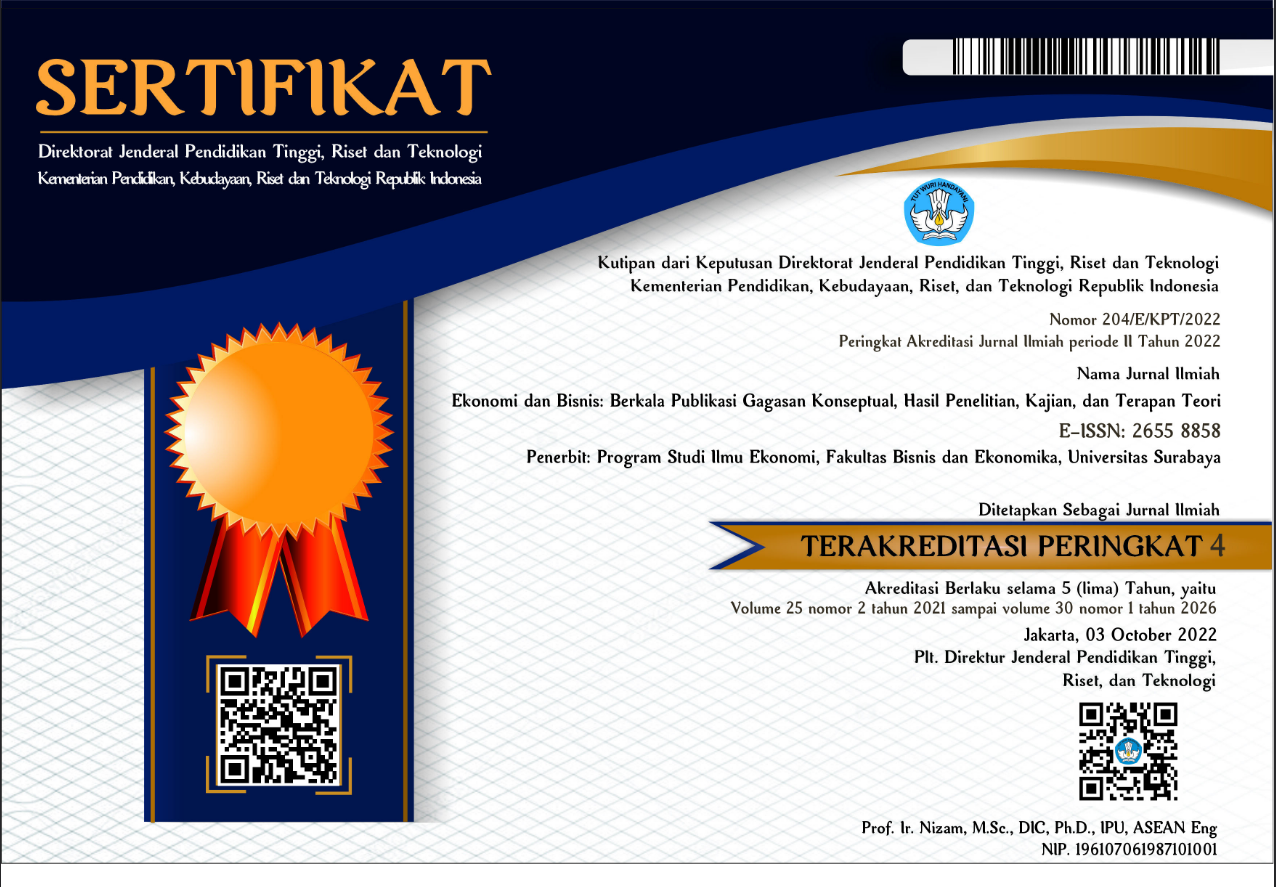ANALISIS PEMBIAYAAN SYARIAH ATAS NILAI TAMBAH PRODUK PERTANIAN
 Abstract Views:
378 times
Abstract Views:
378 times
 PDF Downloads:
210 times
PDF Downloads:
210 times
Abstract
This research aims to find the impact of sharia finance toward the value-added of agricultural products in Indonesia, by using the data from 2005 until 2011. The OLS method was used to findcausal relationship among the variables, i.e. the value-added of agricultural products, manufacture products, and sharia finance. The result showed that sharia finance had positive significant impact on the value-added of agricultural products; meanwhile value-added of manufacture product had negative significant impact on the value-added of agricultural products. This is an evidence the important role of sharia finance in boosting agricultural value-added in the long-run, as well as for other industries.
Downloads
References
Ashari, dan Saptana (2005), Prospek Pembiayaan Syariah untuk Sektor Pertanian, Forum Penelitian Agro Ekonomi, vol. 23, No. 02, 132 – 147.
FAO, The State of Food and Agriculture: Investing in Agriculture, Roma, 2012.
FAO, the State of Agriculture Commodity Market, Roma, 2009.
Gujarati, Damodar and Dawn C. Porter (2009), Basic Econometrics, International Edition 5th, New York: McGraw-Hill.
Momen, Noor Ahmed (2007), “Islamic Banking: Present and Future Challenge”, Journal of Management and Social Sciences, Vol. 3, No. 1: 1 – 10.
Todaro, Michael P. and Stephen C. Smith, (2006), Pembangunan Ekonomi, terj., Andri Yelvi, jilid 1 & 2, Jakarta: Erlangga.
Swartz, Nico P. and Pieter Coetzer, (October. 2010), “Takaful: An Islamic Insurance Instrument”, The Journal of Development and Agricultural Economics , vol. 2(10), pp. 333-339.

 DOI:
DOI:















